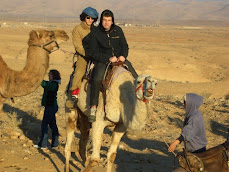An excerpt from my Senior Project:
Chris Anderson in his book The Long Tail says that hit-driven economics are caused by, “A desperate desire to find a one size fits all product, trying to predict demand, pulling ‘misses’ off the market, and limited choice.” (Anderson, pg 165). In his 2006 Wired Article, Chris Anderson wrote, “Hit-driven economics is a creation of an age without enough room to carry everything for everybody.” (Anderson). Anderson believes that one reason the music industry is hit centric is due to limited space in brick and mortar retailers. As the market for physical copies of albums shrinks year after year, the space which the major record labels receive in the physical market shrinks. Retailers do not want to stock CD’s that are going to sit on their shelves and many return unsold CD’s to the distributor after only a couple of months on the shelf. Once the album gets returned to the distributor it is almost guaranteed to sit in a box and becomes an instant loss for the label. This forces labels to push artists who they know they can sell.
Internet retailers, according to Anderson have gained an advantage over traditional retailers because they have the ability to stock a much larger of options. Although the sales from the hits, as in the selection you would find at a Wal-Mart, are still a majority of an online retailers business, their ability to hit niche markets adds a huge aspect to their business perspectives.
“But Vann-Adib, like executives at iTunes, Amazon, and Netflix, has discovered that the "misses" usually make money, too. And because there are so many more of them, that money can add up quickly to a huge new market. With no shelf space to pay for and, in the case of purely digital services like iTunes, no manufacturing costs and hardly any distribution fees, a miss sold is just another sale, with the same margins as a hit. A hit and a miss are on equal economic footing, both just entries in a database called up on demand, both equally worthy of being carried. Suddenly, popularity no longer has a monopoly on profitability.”
(Anderson)
What Anderson is saying relates to a theory he has developed called the Long Tail. The idea behind the Long Tail is that if you were selling music singles, the amount of money you could make outside the hit cut-off point could easily be larger than the amount you make from the hits. The demand for the product is wide spread and therefore it could never before be satisfied in the way the internet has given us the capabilities to do. What this proves is that the internet has helped to destroy an industry. However, it was an industry which was notoriously selfish, known for underpaying and manipulating artists, leaving them in debt, never to actually see anything from their copyrights which are the basis of the entire system. This new model leaves room for artists to be independent from major corporations and have the ability to sell their creation to a wider market. It puts more power in both the artists’ and the consumers’ hands.
Wednesday, April 15, 2009
On Chris Anderson's The Long Tail
Labels:
Chris Anderson,
music industry,
senior project,
The Long Tail
Subscribe to:
Post Comments (Atom)

No comments:
Post a Comment